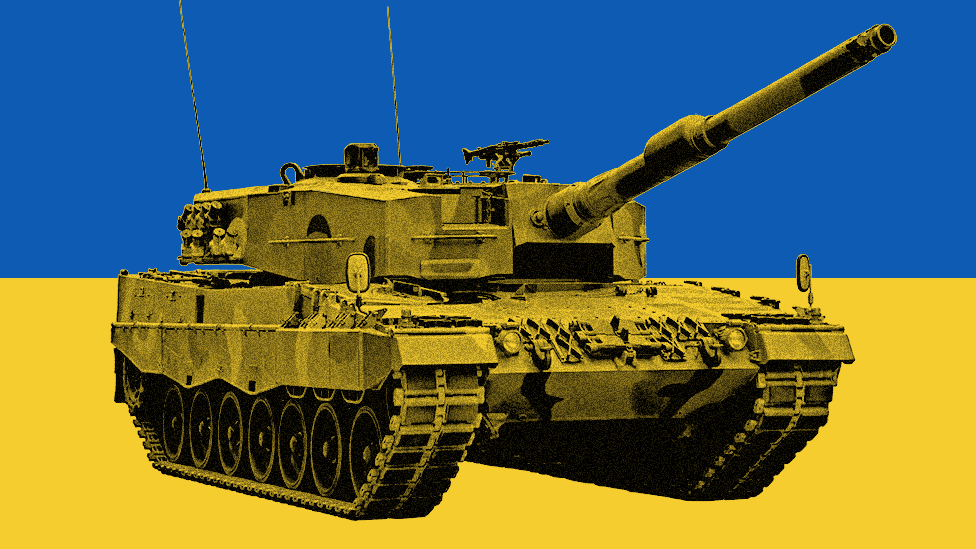Downed plane: Still unanswered questions amid Ukraine and Russia claims
- Published
The BBC has verified this video showing the moment a Russian aircraft crashed in the Belgorod region
There are shooting wars and there are information wars and countries that are fighting do battle on both fronts.
For the rest of us, it can make establishing facts very difficult.
But whilst that's true in this war as in any, it's important to remember that Russia specifically has a long history of brazen lies and disinformation.
That was proven with the shooting down of MH17 and the Salisbury Novichok poisonings, to name just two major incidents in the past decade.
Even the full-scale invasion of Ukraine was launched on a lie: the false claim that a "Nazi" regime was putting Russian speakers here at risk of "genocide".
That doesn't mean every word from the Russian Defence Ministry and the Kremlin is untrue - or from MPs and the state media.
But they often are, so they need checking carefully before repeating.
This time, the reports that an Il-76 transport plane had crashed first appeared on Russian state news agencies.
They quoted the Defence Ministry in Moscow claiming that dozens of Ukrainian prisoners of war had been on board the flight, on their way to a prisoner exchange.
Kyiv did not confirm that and from Russia there was no proof.
A Russian MP, Andrei Kartapolov, began expanding on the statement almost immediately, even suggesting Ukraine might have used a Patriot missile to hit the Ilyushin plane.
That would mean a Western-supplied weapon - a big claim, with as yet no evidence to support it.
As such talk grew louder and spread around the world, Ukraine still made no comment.
Russia's noise inevitably filled the silence.
In Kyiv, we started to hear rumours that a prisoner swap had been planned for today - then confirmation of that from a source. But no-one in Kyiv would say so officially.
Everyone we called for information told us, "not yet", or "we're checking information" or "just wait". For eight hours, there was nothing.
That didn't stop the speculation from Russia, including wild claims that Ukraine had killed its own soldiers on purpose. The supposed rationale for that is so twisted, it's not worth repeating.
But dismissing such talk doesn't mean dismissing the chance that Ukraine has made a terrible mistake. After all, we do know the plane came down - and Ukraine has the capacity for that.
Early on, the Ukrainska Pravda news website quoted an armed forces source saying it was "their job", and that the plane had been carrying Russian S300 missiles. A success, in other words.
That was later corrected, to say the source had not been corroborated.
Then this evening, we finally got two official statements.
They came from the General Staff and from Ukrainian Military Intelligence, and together amount to acknowledgement that Ukraine may have shot the plane down - though neither said so directly.
Ukraine stresses that it has no reliable information about who was on board. But it did confirm that a prisoner swap was planned for Wednesday and didn't happen.
It also said that Russia usually provides information on the route and transport that's to be used for a swap, to make sure it's safe.
This time, Ukraine says, there was none of that.
The General Staff statement amounted to a justification for firing on such a plane - without saying openly what it did.
Russia has increased its missile attacks from Belgorod lately, especially on Kharkiv where it has killed and injured dozens of civilians. Transport planes like that one that crashed on Wednesday morning deliver the weapons that are then launched across the border.
So this evening there are some answers, more hints and lots of claims. But there are still questions.
We can't be sure yet who or what was on the plane that came down. We don't know how much more officials here in Kyiv may already know and not be saying.
If there were Ukrainian soldiers on board the transport plane, then Russia will eventually have to provide the proof. And Ukraine will have to give fuller answers.
Because there will be thousands of families across this country tonight, who have soldier relatives in Russia as prisoners of war, who are now waiting - and worrying.
Related topics
- Published25 January 2024
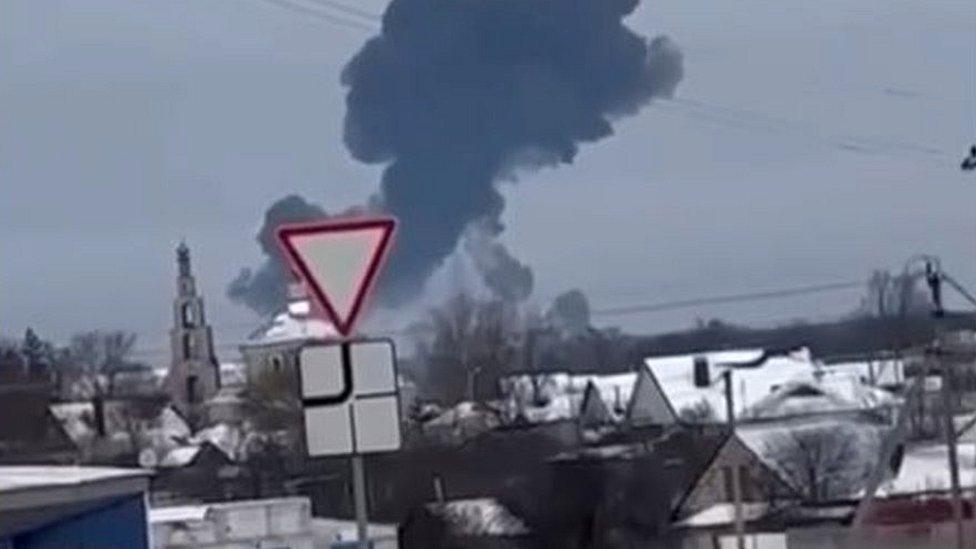
- Published3 January 2024
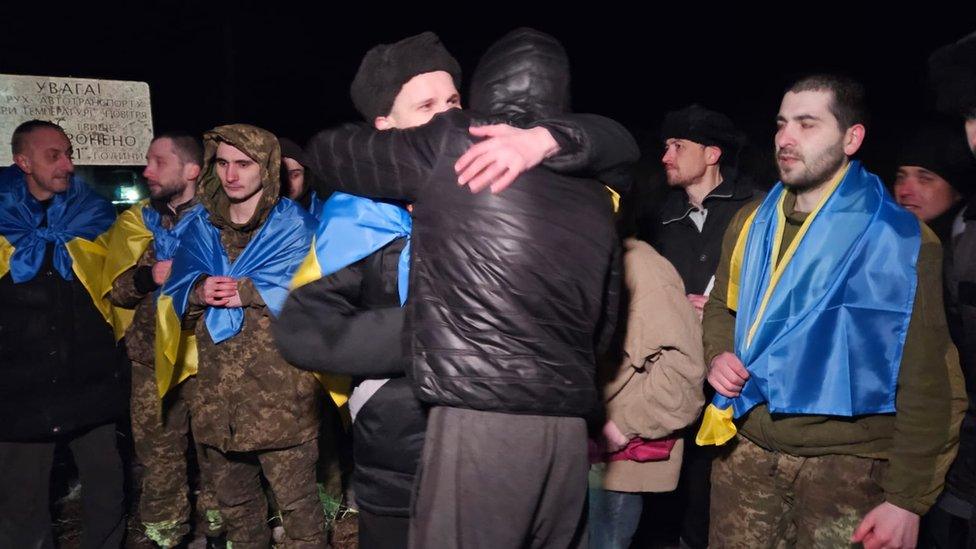
- Published23 January 2024
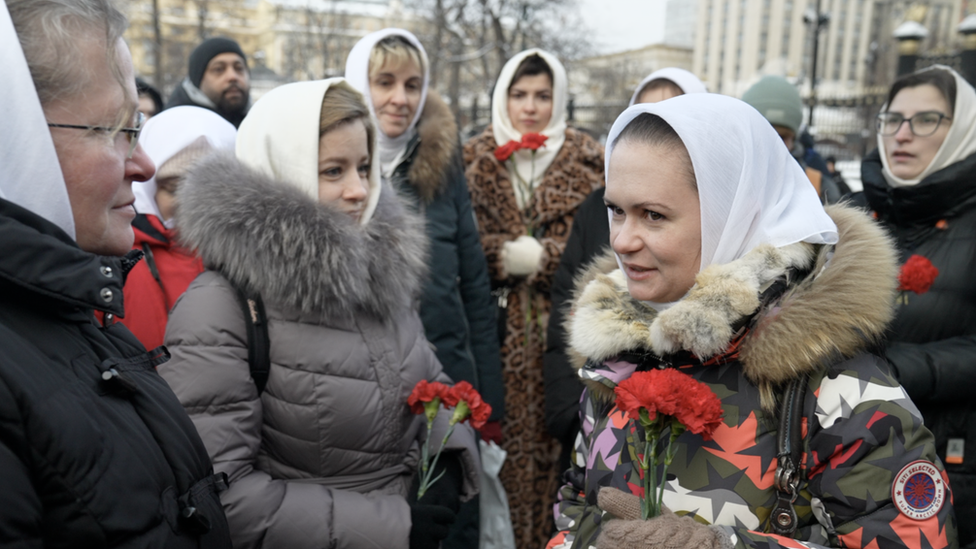
- Published22 January 2024
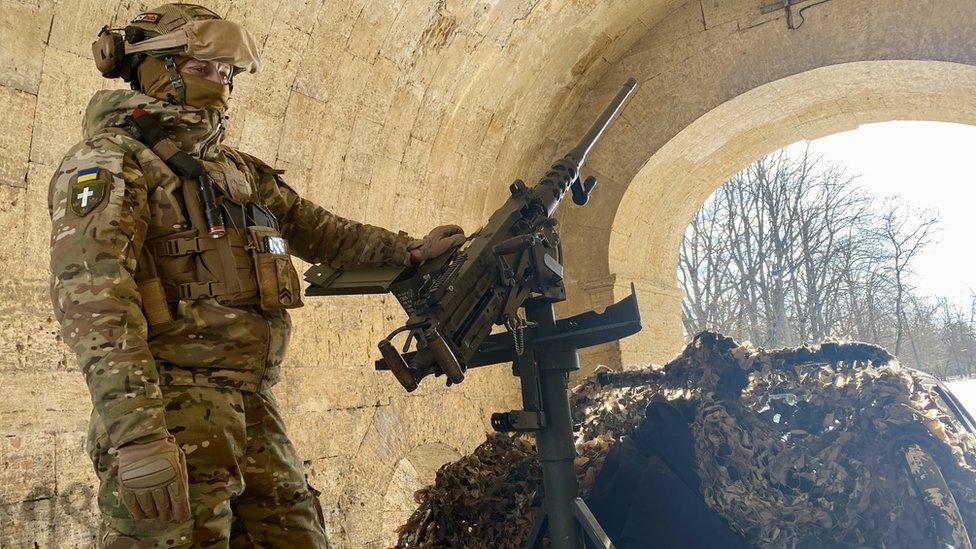
- Published17 February
